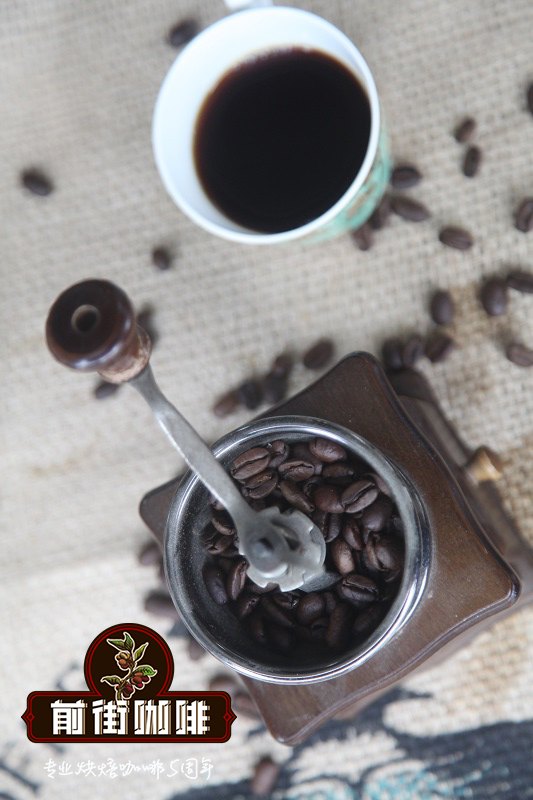Coffee professional terms learn about the introduction of Yemeni coffee.

For professional baristas, please follow the coffee workshop (Wechat official account cafe_style)
Coffee professional term: flavor [Flavor]: the overall impression of aroma, acidity, and mellowness.
Acidity [Acidity]: the strong acidity of all coffee grown on the plateau. The sour here is different from bitterness and Sour, and has nothing to do with pH value. It refers to a fresh and lively quality that promotes coffee to exert its functions of invigorating the mind and clearing the taste. The acidity of coffee is not the acidity or sour smell of acidity or alkalinity, nor is it an uncomfortable acid that enters the stomach. When making coffee, the performance of acidity is very important. under good conditions and skills, a special taste with fresh acidity can be developed, which is a necessary condition for high-grade coffee. The sour taste of coffee describes a lively, bright flavor, which is somewhat similar to that used in wine tasting. If the coffee bean lacks acidity, it is equal to lose vitality, taste empty and boring, without layer depth. Acidity has many different characteristics, such as coffee beans from Yemen and Kenya, which have an impressive fruity aroma and a red wine-like texture.
Mellow [Body]: the taste of the tongue after drinking coffee. The change of mellowness can be divided into light to light, medium, high, fat, and even Indonesian coffee is as thick as syrup.
Odor [Aroma]: the smell and aroma emitted after the coffee has been prepared. The words used to describe smell include caramel, carbon roast, chocolate, fruit, grass, malt, and so on.
Bitterness [Bitter]: bitterness is a basic sense of taste, and the sensory area is distributed in the base of the tongue. The bitterness of deep baking is deliberately created, but the common cause of bitterness is too much coffee powder and too little water.
Light [Bland]: coffee grown in lowlands, usually quite light and tasteless. Coffee with insufficient coffee powder and too much water will have the same light effect.
Salty [Briny]: after brewing, if the coffee is overheated, it will produce a salty taste.
The aroma of soil [Earthy]: commonly used to describe spicy and earthy Indonesian coffee, not the smell of dirt on coffee beans. Uniqueness [Exotic]: describes coffee with its unique aroma and special flavor, such as flowers, fruits, and spices. Coffee from East Africa and Indonesia usually has this property.
Aromatic alcohol [Mellow]: used to describe coffee with good acidity balance.
Mild [Mild]: used to describe a coffee with a harmonious, delicate flavor, used to refer to all plateau coffee except Brazil.
Soft [Soft]: describes low acidity coffee such as Indonesian coffee, and also describes it as mellow or sweet.
Sour [Sour]: a sense of taste in which the sensory area is mainly located at the back of the tongue and is characteristic of light roasted coffee.
Spice [Spicy]: a flavor or smell reminiscent of a particular spice.
Strong [Strong]: technically, it describes the advantages and disadvantages of various tastes, or the relative ratio of coffee to water in a particular conditioned product. In terms of popular usage, it describes the strong flavor of deep-roasted coffee.
Sweet [Sweet]: in essence, it is like fruit, and it also has something to do with the taste of wine.
Wild [Wild]: describes coffee with extreme taste characteristics.
Wine [Winy]: fruit-like acidity and smooth mellow, created by the contrast of special flavor.
Yemeni coffee: when it comes to coffee, people think more of "refreshing". It is also for this reason that coffee has spread widely in Yemen. Between the 15th century and the 16th century, that is, during the Ming Dynasty in China, a famous hot drink became popular. It is said that at that time, an imam and a legal editor of Mocha in Yemen vigorously promoted the hot drink, saying it had the wonderful effect of relieving tiredness. Yemenis make drinks in their own way: take out the flesh of the red fruit, dry it, put it on a clay plate, stir-fry it slightly, mash it, and boil it in hot water to make a hot drink. Yemeni coffee contains a little caffeine in its flesh, so it does have a bit of a refreshing effect. At that time, many people needed evening prayers, and this hot drink refreshed their minds and allowed them to complete the ceremony smoothly. The red refreshing fruit is the coffee cherry. They didn't find the best way to taste coffee, but the hot drink made coffee known to more people.
Important Notice :
前街咖啡 FrontStreet Coffee has moved to new addredd:
FrontStreet Coffee Address: 315,Donghua East Road,GuangZhou
Tel:020 38364473
- Prev

Why is the price of civet coffee expensive? what is SOE?
Professional barista communication please follow the coffee workshop (Wechat official account cafe_style) civet coffee brand: coffee brand 100% guarantee pure wild kopi luwak, produced in Sumatra, Jawa, and Sulvis Island, is part of the 13677 islands in Indonesia. Kopi Luwak brand is the only officially recognized brand by the Indonesian government, with its unique fruit.
- Next

Is civet coffee raised in captivity? introduction to the source of civet coffee
Professional barista communication please follow the coffee workshop (Wechat official account cafe_style) civet coffee brand: coffee brand 100% guarantee pure wild kopi luwak, produced in Sumatra, Jawa, and Sulvis Island, is part of the 13677 islands in Indonesia. Kopi Luwak brand is the only officially recognized brand by the Indonesian government, with its unique fruit.
Related
- How did the Salvadoran coffee industry develop in Central America?
- What exactly does the golden cup extraction of coffee mean?
- The Origin of Coffee flower
- [2023 Starbucks World Earth Day] there are more meaningful things besides free Starbucks coffee!
- What kind of coffee is there in Spain? 9 Flavors of Spanish Coffee
- Aromatic African coffee| Kenya's coffee culture and historical production area
- Liberica Coffee Bean knowledge: the characteristics of Liberian Coffee beans of the three original species of Coffee beans
- The origin and formula of Spanish latte introduces the taste characteristics of Bombon coffee in Valencia, Spain.
- How to adjust the solution of over-extracted coffee
- What is the tasting period of coffee beans? What is the period of coffee and beans? How should coffee wake up and raise beans?

